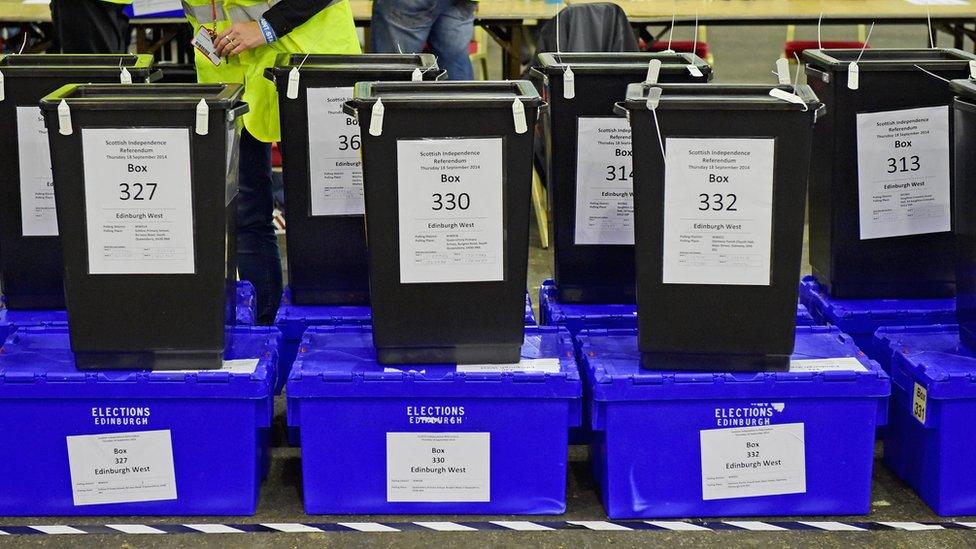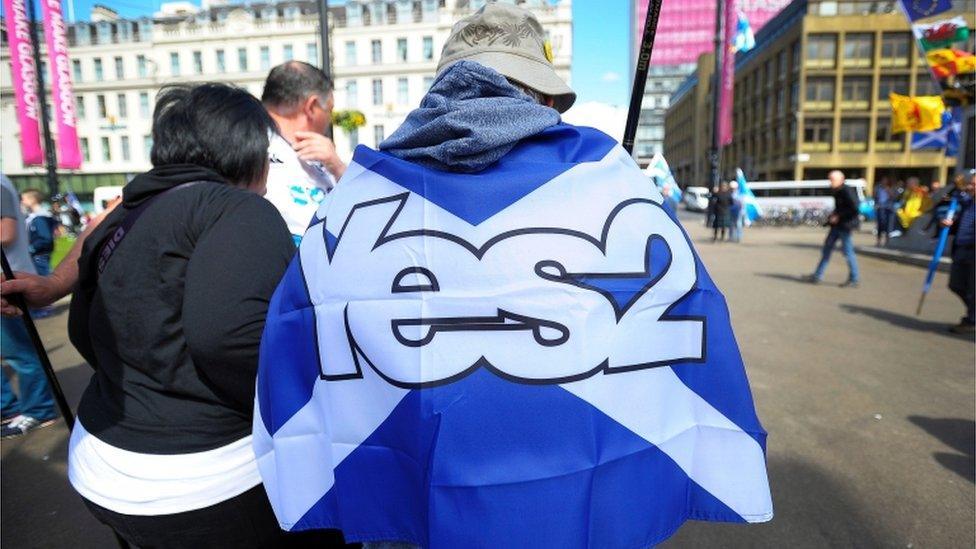At-a-glance - Draft Scottish Independence Referendum bill
- Published

The draft legislation sets out how a second independence referendum would be run
The Scottish government has published draft legislation for a second independence referendum for consultation. Here are some of the key points from the consultation document and draft bill, which sets out how any potential referendum would be organised.

Calling the vote
The consultation sets out, external that a referendum could be called if the Scottish Parliament "consider that it is the best approach to safeguarding Scotland's interests" after the EU referendum.
But as in 2014, "it would be expected" that Westminster's permission would be sought and given for the vote.
The Scottish government would seek to ensure "the highest standards of fairness transparency and propriety are maintained" throughout.

The question
The question would probably be the same as that asked in 2014: "Should Scotland be an independent country?"
This could change as a result of the consultation, but the Electoral Commission would have to sign off on the new question.

The electorate
British, Commonwealth and EU citizens residing in Scotland, including 16 and 17 year olds, would be eligible to vote.
As in 2014, Scots living abroad would not be eligible to vote.
The result would be decided by a simple majority, with no required turnout level.
There would be increased scrutiny of postal votes compared to 2014.

Polling day
As in 2014, counting would be conducted by local authority area.
Votes would be counted by hand "in the traditional way".
A chief counting officer would oversee all 32 local counts, and announce a result totalled from all of them.

The campaign
There would be a 16-week "referendum period" - the same as the 2014 vote, but six weeks longer than the EU referendum campaign.
The Scottish and UK governments would be barred from publishing material "that would have a bearing on the election" during the 28 days running up to the poll.
The Electoral Commission would be tasked with making sure campaign rules are followed, reporting to the Scottish Parliament.
Anyone spending more than £10,000 on campaigning would have to register with the Commission as a "permitted participant".
Campaign spending limits would be broadly the same as they were in 2014.
- Published20 October 2016
